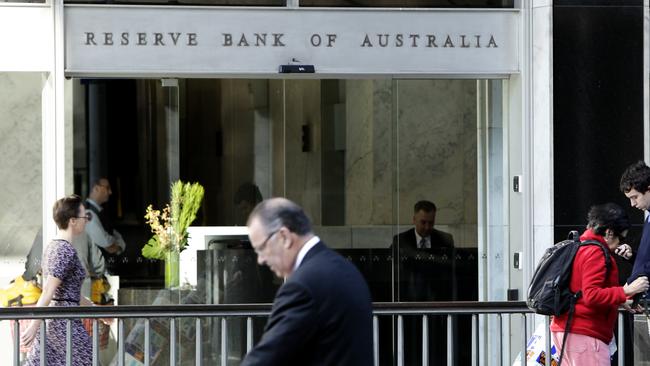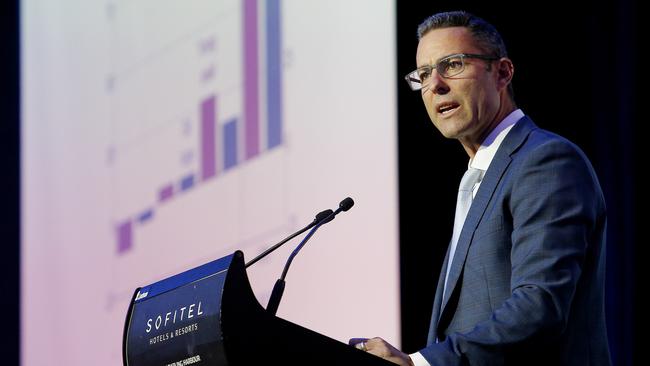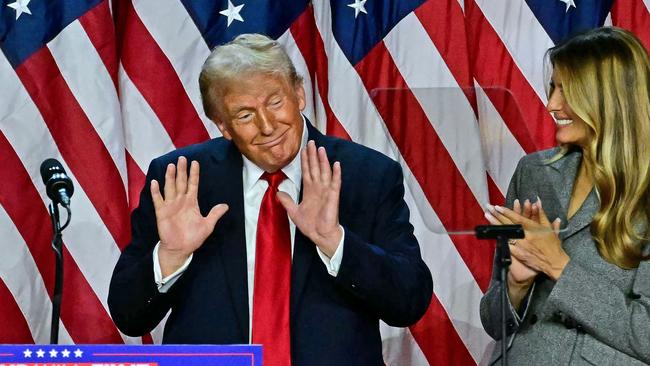RBA says rising global risk to our financial system fuelled by politics, climate change and social media
The Reserve Bank says there’s a growing risk to Australia’s financial system from global political tensions, climate change and social media-fuelled bank runs.

The Reserve Bank of Australia has warned of growing risks to the domestic financial system from global political tensions, climate change and social media-fuelled bank runs.
RBA assistant governor (financial system) Brad Jones said in Sydney that risks were increasingly coming from outside the financial system with “little historical precedent to guide us in how navigate them”.
“Foremost there are geopolitical risks, operational risks and the risks associated with climate change,” Dr Jones told a lunch organised by the Financial Services Institute of Australasia.
“Those risks are continuing to build and they’re building in troubling ways. They not only have the potential to be systemic, but they could also cut across the financial system, the economy and society more generally in complex ways.
Dr Jones said the RBA and other financial agencies were stepping up the intensity of work to prepare to handle these non-traditional risk areas.

“We view these risks as more structural than cyclical, and we suspect they’re going to be with us for some time,” he said.
“We are urging industry to actively prepare for a much more challenging operating environment in the years ahead.”
Dr Jones’ warning comes amid rising global uncertainties including tension in the Middle East, the continuing Russian invasion of Ukraine and this week’s election of Donald Trump for a second term as US president.
Dr Jones said there was “obviously a lot of political and international political risk at the moment” that was featuring very prominently in the minds of policy makers.
The US Federal Reserve cut interest rates by a quarter of a percentage point on Thursday as it prepared for a more complex economic landscape following the election of Mr Trump.
Fed chair Jerome Powell said the election, which could result in widespread deportation of immigrants, broadbased tariffs and tax cuts, would have no “near-term” impact on US monetary policy. The Bank of England also this week cut its benchmark interest rate for a second time in three months.
The International Monetary Fund warned last month that global asset prices may not fully reflect the potential impact of wars and trade disputes. It said this disconnect made shocks more likely, because high geopolitical tension could trigger sudden sell-offs in financial markets.

Dr Jones said the collapse of US tech sector lender Silicon Valley Bank in 2023 underscored the danger of rapid-fire runs on financial institutions fuelled by social media. Communications on Twitter and other social media platforms were blamed as acting as a driver of the financial panic that led to the collapse of the $US212bn ($319bn) bank. SVB’s collapse marked the second-largest bank failure in US history after Washington Mutual’s in 2008.
“We’re now operating in an environment where because of innovations like social media and fast payment systems, there can be runs on the banking system that occur with a velocity that far exceeds the assumptions that were built into regulations after the global financial crisis,” Dr Jones said.
“There’s certain things at a high level that prudential regulators and central banks can do.
“There’s also certain things that industry can do, and really rethink what sort of liquidity insurance they might need for really adverse situations.”
As part of preparing for rapidly evolving economic systems, Dr Jones said that for the first time the RBA had laid out a road-map for the development of an official digital currency in Australia.
Such a currency would be a digital form of money, issued by the RBA, that was accessible to a limited range of wholesale market participants, such as financial institutions and, depending on the design of this form of money, other large institutions.
“The RBA has made a strategic commitment to prioritise its research agenda on wholesale central bank digital currency and the role that it could potentially play in uplifting the efficiency and resilience of wholesale markets in Australia,” Dr Jones said.
He said the RBA on Friday had issued a consultation paper to examine the role that innovations in digital money could play in wholesale markets.
Mr Powell has downplayed the possibility of the central bank issuing its own digital currency, and said if it ever came to pass, the government would play a limited role.
“People don’t need to worry about a central bank digital currency, nothing like that is remotely close to happening anytime soon,” he said this year.







To join the conversation, please log in. Don't have an account? Register
Join the conversation, you are commenting as Logout